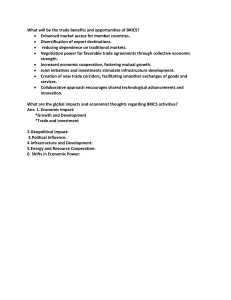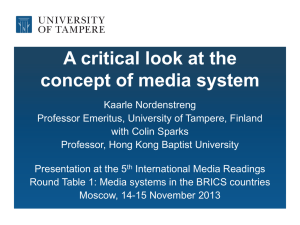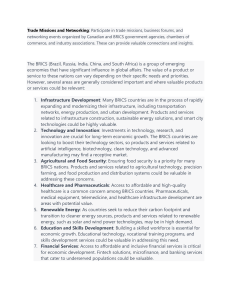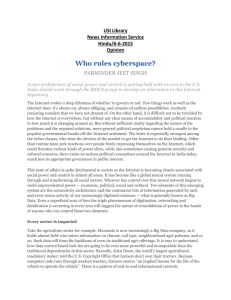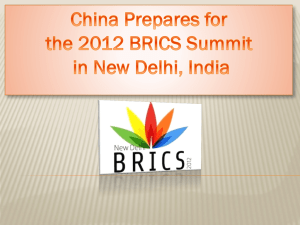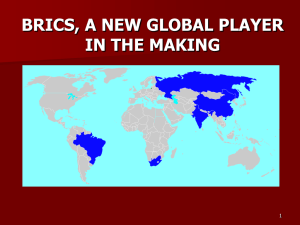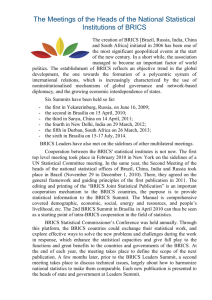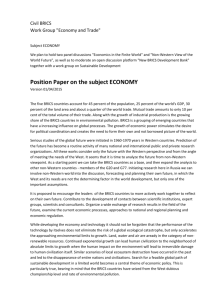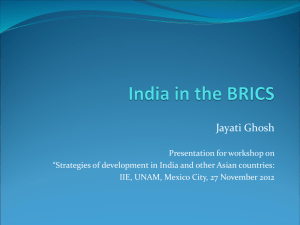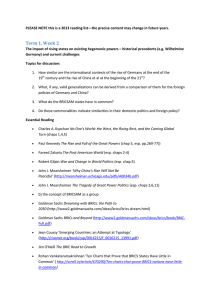How BRICS Pushes to Change the Conventional Paradigms in
advertisement
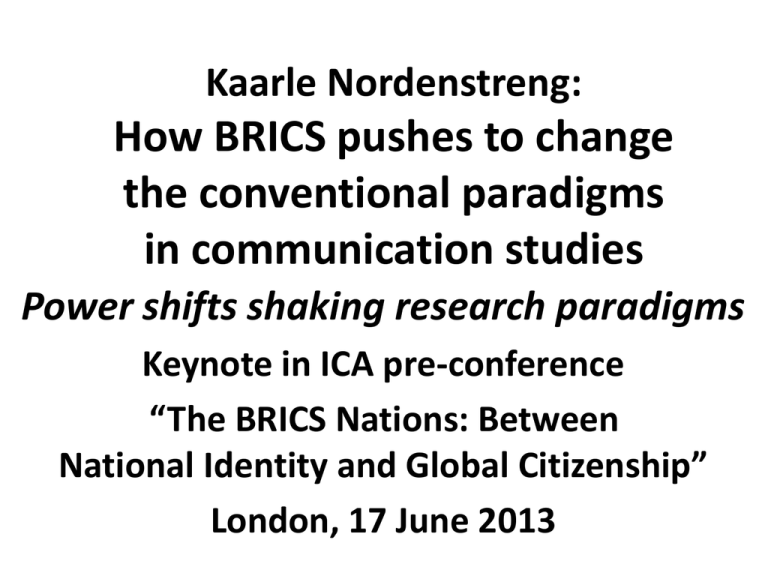
Kaarle Nordenstreng: How BRICS pushes to change the conventional paradigms in communication studies Power shifts shaking research paradigms Keynote in ICA pre-conference “The BRICS Nations: Between National Identity and Global Citizenship” London, 17 June 2013 Media Systems in Flux: The Challenge of the BRICS Countries Project financed by the Academy of Finland and hosted at the University of Tampere http://uta.fi/cmt/tutkimus/BRICS.html • http://farm9.staticflickr.com/8405/861224359 5_5461abde09_b.jpg BRICS Summits 5. Durban (South Africa) 2013 http://www.brics5.co.za/ 4. Delhi (India) 2012 3. Sanya (China) 2011 2. Brasilia (Brazil) 2010 1. Yekaterinburg (Russia) 2009 Top ten Internet users, in millions Intellectual history of the field Stages from 1950 to 2010 1. Dominant paradigm of modernity 2. Dependency paradigm of anti-imperialism 3. Multiplicity and participatory paradigm of democracy 4. Networking paradigm of globalization Samples from each stage… Current scholarship G. Wang (ed.) (2011) De-Westernizing Communication Research. Altering Questions and Changing Frameworks D. Hallin & P. Mancini (eds.) (2012) Comparing Media Systems Beyond the Western World K. Bruhn Jensen & R. Neuman et al. (2013) Communication as a Discipline – Views from Europe. Evolving Paradigms of Communication Research. International Journal of Comm. 7 Power configurations behind the intellectual history Cold War 1950-1990: East – West – South Collapse of Communism 1989-1991 USA economically & militarily superior European integration & growth Asian economic growth Rise of Islam in Asia, Africa & Arab world Crisis of capitalism Neo-liberalism at crossroads Personal stories within the intellectual history Progressive Americans such as Herbert Schiller and perestroika in Gorbachev’s USSR Russians such as Yassen Zassoursky responding to perestroika My own story: from mainstream positivist to – ontological realist & new left activist in 1970s – fellow traveller of the USSR in 1980s – radical structuralist in 1990s The push of BRICS Compels our framework to be based on world order & political economy Calls us to prefer de-westernization Calls us to follow postcolonial traditions Calls us to look for both comparisons and big meta stories Invites our approach to BRICS itself to be critically reflective Thank you! kaarle.nordenstreng@uta.fi http://www.uta.fi/cmt/en/contact/staff/ kaarlenordenstreng/index.html
